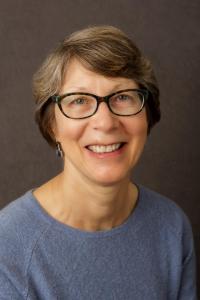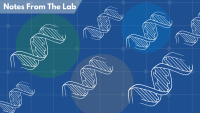Lorraine S. Symington, PhD
- Harold S. Ginsberg Professor of Molecular Pathogenesis in the Department of Microbiology and Immunology and Professor of Genetics and Development

Overview
Homologous recombination generates diversity by creating new combinations of genes, or parts of genes. It is also required for genome stability as it is essential for the repair of some types of DNA lesions in mitotic cells and for segregation of homologous chromosomes during meiosis. We use the yeast Saccharomyces cerevisiae as a model system for these studies because it is easily manipulated genetically and biochemically and shows high frequency mitotic and meiotic recombination. Genetic and physical studies of yeast recombination, in combination with the knowledge of recombination proteins in E. coli, have been instrumental in our thinking about the mechanism of recombination. The pathway envisioned is a complex series of reactions thought to involve the formation of a double-strand break (DSB), resection of the exposed duplex ends, pairing of the single-stranded regions with the homolog, branch migration, and Holliday junction cleavage. This complex reaction is expected to require several different biochemical activities. To identify these proteins in yeast we have used both genetic and biochemical approaches. For the genetic approach, we devised a novel colony-sectoring assay and used it to isolate mutants with altered rates of recombination. In addition we used this assay to further characterize known mutants and discovered several pathways for mitotic recombination. We have shown that proteins in the major pathway form a complex required for recombinational repair. In the biochemical approach, we have focused most of our work on nucleases. We purified an exonuclease from yeast extract and subsequently demonstrated that it plays important roles in meiosis and in mismatch repair. We have also shown that the MRE11 gene, which is mutated in individuals with the human cancer-prone syndrome ATLD, encodes an endonuclease. By site directed mutagenesis, nuclease-defective alleles of MRE11 were shown to cause defects in meiotic, but not mitotic recombination.
Academic Appointments
- Harold S. Ginsberg Professor of Molecular Pathogenesis in the Department of Microbiology and Immunology and Professor of Genetics and Development
Credentials & Experience
Honors & Awards
Graduated with Honors in Biology, 1979. Science Research Council Postgraduate Studentship, 10/79-9/82. Damon Runyon-Walter Winchell Cancer Fund Postdoctoral Fellowship, 5/83-4/85. Leukemia Society Special Fellow Postdoctoral Fellowship, 7/85-6/87. Irma T. Hirschl Career Scientist Award, 1/89-12/94. Leukemia Society of America Scholarship, 7/90-6/95. Harold and Golden Lamport Basic Research Award, Columbia University, 1994. Stohlman Scholar of the Leukemia Society of America, 1995-6.
Research
Genetics and biochemistry of DNA recombination and repair in yeast. The long-term objective of my research is to identify the proteins that catalyze homologous recombination in eukaryotes.
